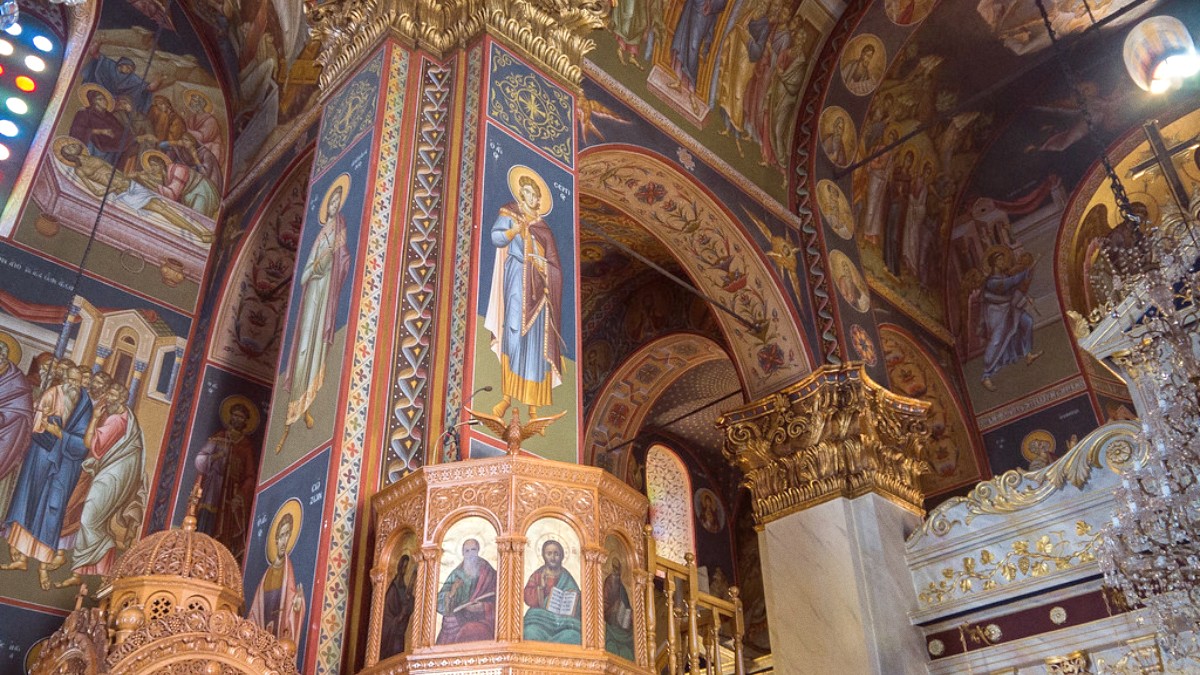
The Peloponnese, Greece
It is a place where history intertwines with modern life, where the rhythm is relaxed yet engaging. Travelers find Kalamata a destination with tranquil moments and lively experiences. Discover Messenia’s capital, a city that blends natural beauty, cultural depth, and local flavor.
Kalamata is a strategic position in the southwestern Peloponnese peninsula, a large landmass making up the southern part of mainland Greece. As the capital and main port of the Messenia regional unit, it functions as a central hub for the area.
The city sits at the base of the Taygetus mountain range, a natural barrier that runs along the eastern side of Messenia. These mountains create a dramatic and impressive backdrop to the city, forming a striking contrast with the azure waters of the Messenian Gulf.
The Nedon River flows through Kalamata, originating from the Taygetus slopes and eventually emptying into the Messenian Gulf. This river shapes the city's landscape, presenting green spaces and a pleasant natural feature. The fertile Messenian plain surrounds Kalamata, making it a productive agricultural area. This geographical setting explains the region's bounty, including its celebrated olives and olive oil.
Kalamata is a long and layered history, with roots tracing to ancient times. Evidence of human presence in the broader Messenian region dates to the Neolithic period. Nearby Ancient Messene, a well-preserved archaeological site, offers a window into the region's classical past, demonstrating its standing in ancient Greece.
Kalamata functioned as a local center.
It became part of the Principality of Achaea. The Frankish castle stands today.
Each period left marks on the city's architecture and culture.
Kalamata was the first city liberated from Ottoman rule, a pivotal event.
Globally recognized for its olives and olive oil.
A deep connection to the land and its produce shapes a core part of Kalamata's identity, influencing its cuisine, traditions, and way of life. When you visit Kalamata, you connect with a living history, from ancient ruins to Byzantine churches and the ongoing cultivation of the land.
The Peloponnese presents a diverse landscape. It features high mountains, deep gorges, fertile plains, and an extensive coastline with numerous gulfs and bays. Kalamata's location positions it well for exploring other parts of the Peloponnese.
The Kalamata olive, with its distinctive shape and flavor, is a product of this fertile land and centuries of cultivation. Olive oil production has shaped the local economy and culture for generations.
The proximity of mountains and sea means Kalamata delivers a diverse landscape within a short distance. You can spend your morning hiking a mountain trail and your afternoon swimming in the sea. This unique geography shaped the city's development, presenting both natural defenses and access to maritime trade routes.
Kalamata presents visitors a compelling mix of attractions and experiences. It has a relaxed Mediterranean atmosphere without the intense tourism found in other Greek destinations. Travelers find the pace here more authentic, permitting a connection with local life.
The city invites you to experience genuine Greek hospitality, enjoy delicious local food, and discover a region rich in history and natural beauty. This city has a welcoming environment, whether you seek relaxation, adventure, or cultural exploration.
Explore the Byzantine-Frankish Castle, Church of Ypapanti, and the Municipal Railway Park.
Enjoy Kalamata's city beach, Messenian Gulf water sports, and Polylimnio Waterfalls.
Savor fresh seafood, grilled meats, and traditional Messenian dishes like Sygklino.
Accommodation options cater to various budgets, from cozy guesthouses in the Old Town to modern beachfront resorts. Getting around Kalamata is simple.